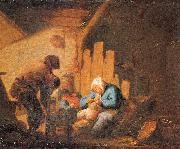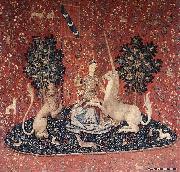
|
Maffei, Francesco
|
|||
|
|
|||
| Italian Baroque Era Painter, 1605-1660 | |||
|
|
|||
|
Apercevoir new5/Maffei, Francesco_PRDEtk.jpg ID de tableau:: 19242 |
1657-58 Pétrole sur le canevas. | ||
|
|
|||
|
Ostade, Adriaen van
|
|||
|
|
|||
| Dutch Baroque Era Painter, 1610-1685 | |||
|
|
|||
|
la Vue new5/Ostade, Adriaen van-996788.jpg ID de tableau:: 19720 |
le Pétrole sur lambrise L-ermitage, la Rue. Pétersbourg. | ||
|
|
|||
|
Adriaen van ostade
|
|||
|
|
|||
| Dutch Baroque Era Painter, 1610-1685 | |||
|
|
|||
|
la Vue new3/Adriaen van ostade-472727.jpg ID de tableau:: 28332 |
mk60 Pétrole sur lambrise 8x10 | ||
|
|
|||
|
unknow artist
|
|||
|
|
|||
|
|
|||
|
Sight new21/unknow artist-438377.jpg ID de tableau:: 63963 |
1500 Wool and silk, 300 x 303 cm Musee de Cluny, Paris The picture shows a tapestry representing Sight from the Five Senses Tapestries that were made for a member of the le Viste family of Lyons - probably Antoine le Viste - at the end of the fifteenth century. Though few have survived into the present, tapestries like these were the most sought-after, expensive and important of the Gothic luxury arts in the later Middle Ages in northern Europe. They were carried from castle to castle, providing warm hangings against draughts and a sumptuous setting for court spectacles. Their densely patterned floral grounds provided the backdrop for stories from the Bible, classical epics, and chivalric romances. Most came in sequences that could create a theme for a room, transforming bare walls into an exotic setting or, as with le Viste's series (sometimes called "La Dame a la Licorne"), a space for erotic experience. This series of tapestries was made as an engagement present in which the patron could present his future betrothed with an art of love based on his future expectations of sensuous pleasure. The lover, Viste himself, is not present as a person in the tapestries, but in each of them he is represented by his heraldic emblems, the lion and the unicorn. Only a beautiful lady, according to the traditional bestiary story, could tame the enigmatic unicorn. Thus, in the Sight tapestry, the lady herself does not look in the mirror, but makes the unicorn, playing like a pet in her lap, admire his own reflection. The way in which the lady's clothing illusionistically recreates within the medium of tapestry itself other expensive types of woven and embroidered threads and the sophisticated way in which natural forms, leaves, and sexual symbols like rabbits are sprinkled into an otherwise flat field, exhibit the most refined expression of Gothic art. , Artist: UNKNOWN MASTER, French , Sight , 1451-1500 , French , painting , mythological | ||
|
|
|||
|
Also Buy::. For Following Paintings / Artists / Products, Please Use Our Search Online: |









